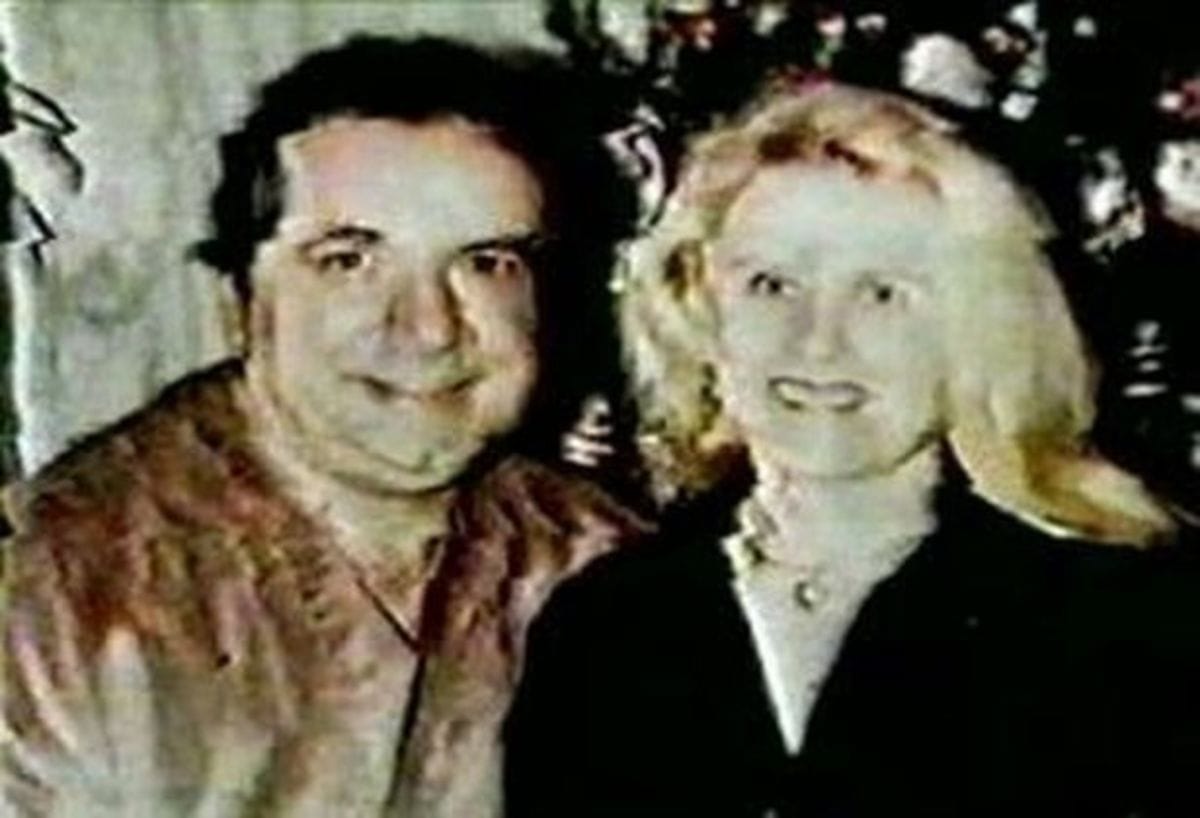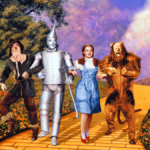Judith Barsi’s Legacy: A Star Gone Too Soon
Judith Barsi, a young girl with a radiant smile and immense talent, captivated audiences in the 1980s with her film and television performances. Sadly, her life was tragically cut short at the tender age of ten, but her legacy continues to shine brightly.
Discovered at a skating rink (with odds of 10,000 to 1!), Judith’s journey began with commercials before quickly transitioning to television and film. Movie lovers likely recognize her voice from two beloved animated films: “The Land Before Time,” where she voiced the adorable Ducky, and “All Dogs Go to Heaven,” where she breathed life into Anne-Marie.
Beyond voice acting, Judith graced the small screen in guest appearances on popular sitcoms like “Cheers” and “Punky Brewster.” She also embraced more complex characters in television movies such as “Kids Don’t Tell” and “Do You Remember Love?”. Her ability to portray vulnerable characters left a lasting impact, reminding audiences of the power of empathy and the fragility of life.
In 1988, tragedy struck, and the world mourned the loss of Judith under unthinkable circumstances. Her death sent shockwaves through the entertainment industry, sparking conversations about domestic violence and its devastating impact on children. The tragedy prompted discussions about how to better protect young actors and provide them with the necessary support.
Though her time was short, Judith’s talent continues to inspire. Her films, especially “The Land Before Time” and “All Dogs Go to Heaven,” remain cherished classics. Fans worldwide celebrate Judith through tributes and discussions, ensuring that her memory, like her talent, lives on. By remembering Judith’s work and learning about her story, we honor her life and contribute to creating a safer, more supportive environment for all young performers.
The Tragic End of Judith Barsi
Judith Barsi’s promising career was tragically cut short, leaving a void in the entertainment industry and a profound sense of sadness in the hearts of many. Her talent, evident from a young age, secured her roles that brought joy to countless children and families. Behind the scenes, however, Judith lived in fear of her father, József Barsi, whose struggles with alcoholism fueled a pattern of domestic violence.
József threatened both Judith and her mother, Maria, creating a constant atmosphere of terror in their home. Despite attempts to seek help and reports made to Child Protective Services, the system tragically failed to protect them. The situation culminated on July 25, 1988, when József shot and killed Judith in her sleep. He then took the life of his wife, Maria, before turning the gun on himself. This horrific act sent shockwaves through the industry, highlighting the devastating consequences of domestic violence and the urgent need for greater protection for those at risk.
Judith Barsi’s story serves as a stark reminder of the hidden suffering that can exist behind seemingly perfect facades. It compels us to confront the realities of domestic abuse, advocate for stronger support systems, and remember Judith not just for her talent but also for the innocent life tragically lost.
Remembering the Voice of Ducky
Judith Barsi, the sweet voice behind Ducky in “The Land Before Time,” led a life that was tragically cut short. Even at ten years old, she had already made a name for herself in acting, appearing in commercials and television shows before becoming the beloved Ducky. Sadly, Judith’s home life was far from happy. Her father, József, struggled with alcohol and anger, which seemed to worsen as Judith’s acting career blossomed. His behavior escalated to jealousy and control, creating a dangerous environment that ultimately ended in tragedy.
On July 25, 1988, in a fit of rage, József shot and killed Judith while she slept. He then took the life of Judith’s mother, Maria, before turning the gun on himself. Though her time was short, Judith’s story is incredibly important. It reminds us that child abuse is a serious problem that demands attention and action. Her story also highlights the critical need to recognize the signs of abuse and seek help if you or someone you know is in danger.
Judith’s legacy lives on, not just through her memorable role as Ducky, but through organizations that work tirelessly to prevent child abuse and support victims. These groups strive to ensure that no child endures what Judith experienced, working towards a future where all children feel safe and loved.
Judith Barsi’s Animated Films: A Lasting Impact
Judith Barsi’s voice, brimming with youthful energy and emotion, brought life to unforgettable characters in animated films of the 1980s. She is best remembered as Ducky in “The Land Before Time,” a film that continues to resonate with audiences. Her talent extended beyond the prehistoric world to heartwarming tales like “All Dogs Go to Heaven,” where she voiced Anne-Marie.
Despite her tragically short career, Judith’s impact on animation remains significant. “The Land Before Time” and “All Dogs Go to Heaven” stand as powerful reminders of her talent, introducing her captivating voice to new generations. The enduring popularity of these films ensures that Judith Barsi’s legacy as a gifted young actress in animation lives on.
Judith Barsi: Beyond the Screen
To truly understand the impact of Judith Barsi’s life and work, it’s crucial to delve deeper than her on-screen presence. Here are some key points to consider:
Early Life and Career: Born on June 6, 1978, in Los Angeles, California, Judith was the daughter of Hungarian immigrants József and Maria Barsi. Her mother, recognizing Judith’s talent early on, nurtured her acting aspirations. By age five, Judith had already landed her first role, playing Kimberley MacDonald in the TV movie “Fatal Vision.” This marked the beginning of a prolific career that included over 70 commercials, guest appearances on shows like “Cheers” and “Growing Pains,” and roles in films like “Jaws: The Revenge.” It’s estimated that she was earning $100,000 per year by age ten, a testament to her talent and demand.
Escalating Abuse: As Judith’s success grew, so did the tension within her family. József, who struggled with alcoholism, became increasingly abusive towards Judith and her mother. There are suggestions that his rage was fueled by jealousy and a need for control, a tragic irony considering Judith’s earnings supported the family. Maria reported the abuse to authorities, but the intervention was tragically insufficient.
A Legacy Remembered: Despite the horrific circumstances of her death, Judith Barsi’s legacy continues to inspire. Her story has prompted discussions about child actor safety, domestic abuse awareness, and the importance of recognizing warning signs. Today, several organizations work tirelessly to prevent similar tragedies, offering support and resources for victims of domestic violence.
Beyond Ducky: While “The Land Before Time” remains Judith’s most iconic role, it’s essential to remember the scope of her talent. Directors who worked with her, including Don Bluth, praised her professionalism, noting her natural ability to connect with characters. Examining her performances beyond Ducky can offer deeper insight into her range and skill as a young actress.
Judith’s Story in the #MeToo Era: In the wake of the #MeToo movement, Judith’s story resonates with renewed relevance. It highlights the vulnerability of young performers, the potential for abuse within the industry, and the systemic failures that can allow such tragedies to occur. By continuing to discuss Judith’s story, we participate in a larger conversation about power dynamics, accountability, and the importance of protecting vulnerable individuals.
For those seeking a deeper understanding of the circumstances surrounding other impactful figures, consider exploring these resources:
Kurt Cobain’s suicide photos provide a sensitive yet comprehensive exploration of the tragic event.
Additionally, for a glimpse into the rugged beauty of nature, venture into Leadore, Idaho, where mountains meet rivers, creating a breathtaking symphony of scenery.
Judith Barsi’s story is a reminder that even in the face of unimaginable tragedy, the power of art can endure. Her films continue to entertain and inspire, offering glimpses of a bright light extinguished too soon. Her legacy reminds us of the importance of speaking out against injustice, advocating for the vulnerable, and striving to create a world where every child can live free from fear and violence.
- Crypto Quotes’ Red Flags: Avoid Costly Mistakes - June 30, 2025
- Unlock Inspirational Crypto Quotes: Future Predictions - June 30, 2025
- Famous Bitcoin Quotes: A Deep Dive into Crypto’s History - June 30, 2025

















2 thoughts on “The Complete Guide to Judith Barsi Movies and TV Shows”
Comments are closed.